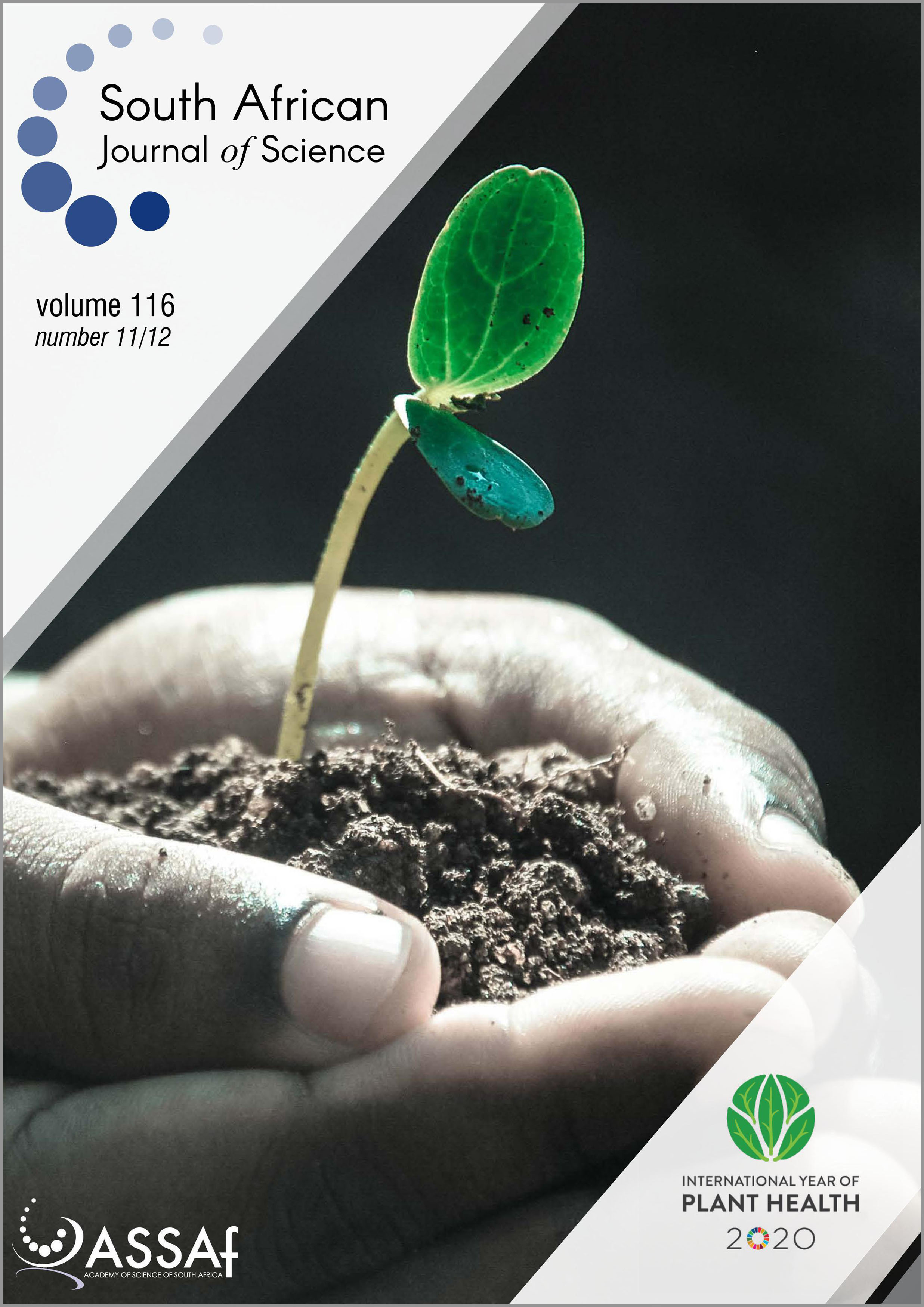Emerging potato pathogens affecting food security in southern Africa: Recent research
DOI:
https://doi.org/10.17159/sajs.2020/8055Keywords:
potato, late blight, bacterial wilt, soft rot, powdery scabAbstract
Potato is a staple crop that contributes to food security and poverty alleviation in developing nations. Despite this, yields in developing nations are often unsustainably low, due to various biotic and abiotic factors that negatively affect production. Some of the most important biotic constraints are pathogens, many of which are disseminated by seed tubers. The lack of functional or formal seed certification systems in many southern African countries results in a continual increase in pathogen pressure. Short rotation cycles, poor plant nutrition and inefficient control measures exacerbate the crop production challenges faced by resource poor growers. In this review, we discuss five of the most important diseases on potatoes in southern Africa, namely late blight, bacterial wilt, soft rot / blackleg, powdery scab and zebra chip. Management options for small-scale growers are provided.
Significance:
- Potato production in southern Africa is threatened by tuber-borne pathogens.
- Establishment and implementation of seed certification systems in southern African countries will increase potato yields and subsequently contribute to food security.
- Late blight, bacterial wilt, soft rot / blackleg and powdery scab are important emerging diseases on potatoes in southern Africa.
- Improved understanding of the biology of pathogens and the epidemiology of diseases will contributeto the management thereof.
Published
Issue
Section
License

All articles are published under a Creative Commons Attribution 4.0 International Licence
Copyright is retained by the authors. Readers are welcome to reproduce, share and adapt the content without permission provided the source is attributed.
Disclaimer: The publisher and editors accept no responsibility for statements made by the authors
How to Cite
- Abstract 1267
- PDF 2367
- EPUB 157
- XML 300












.png)